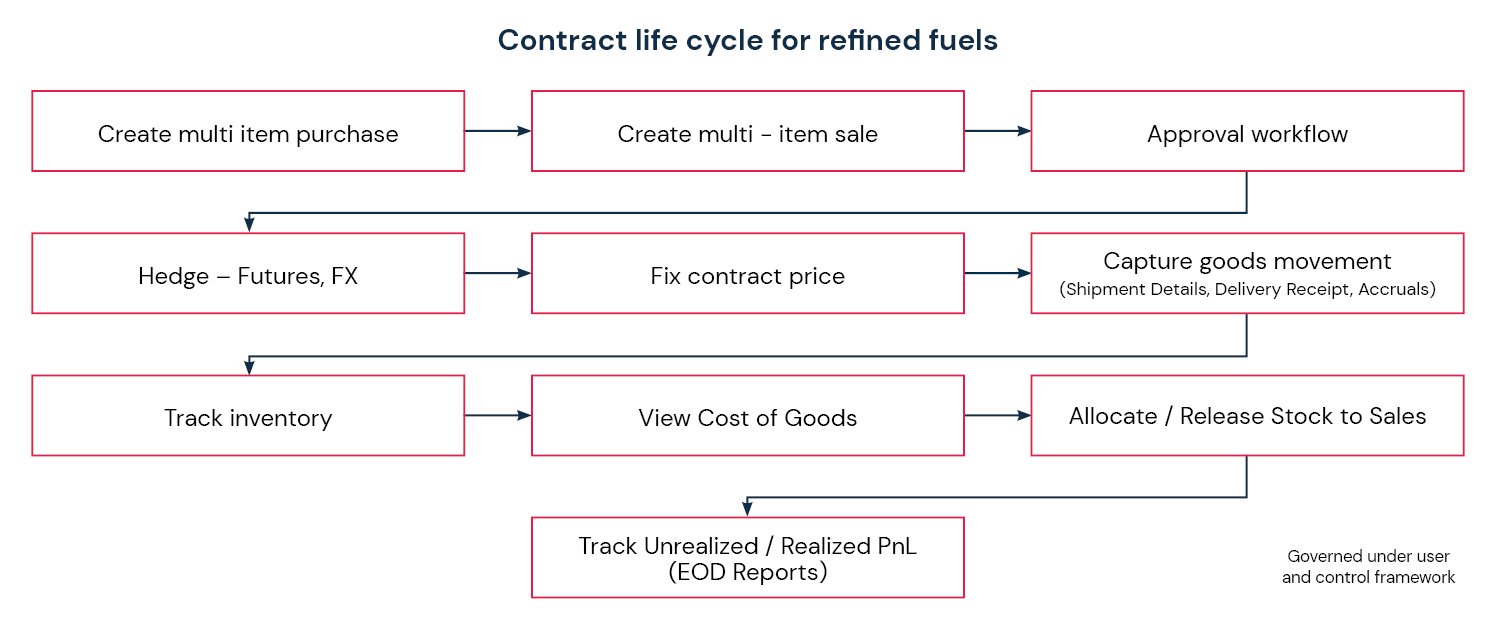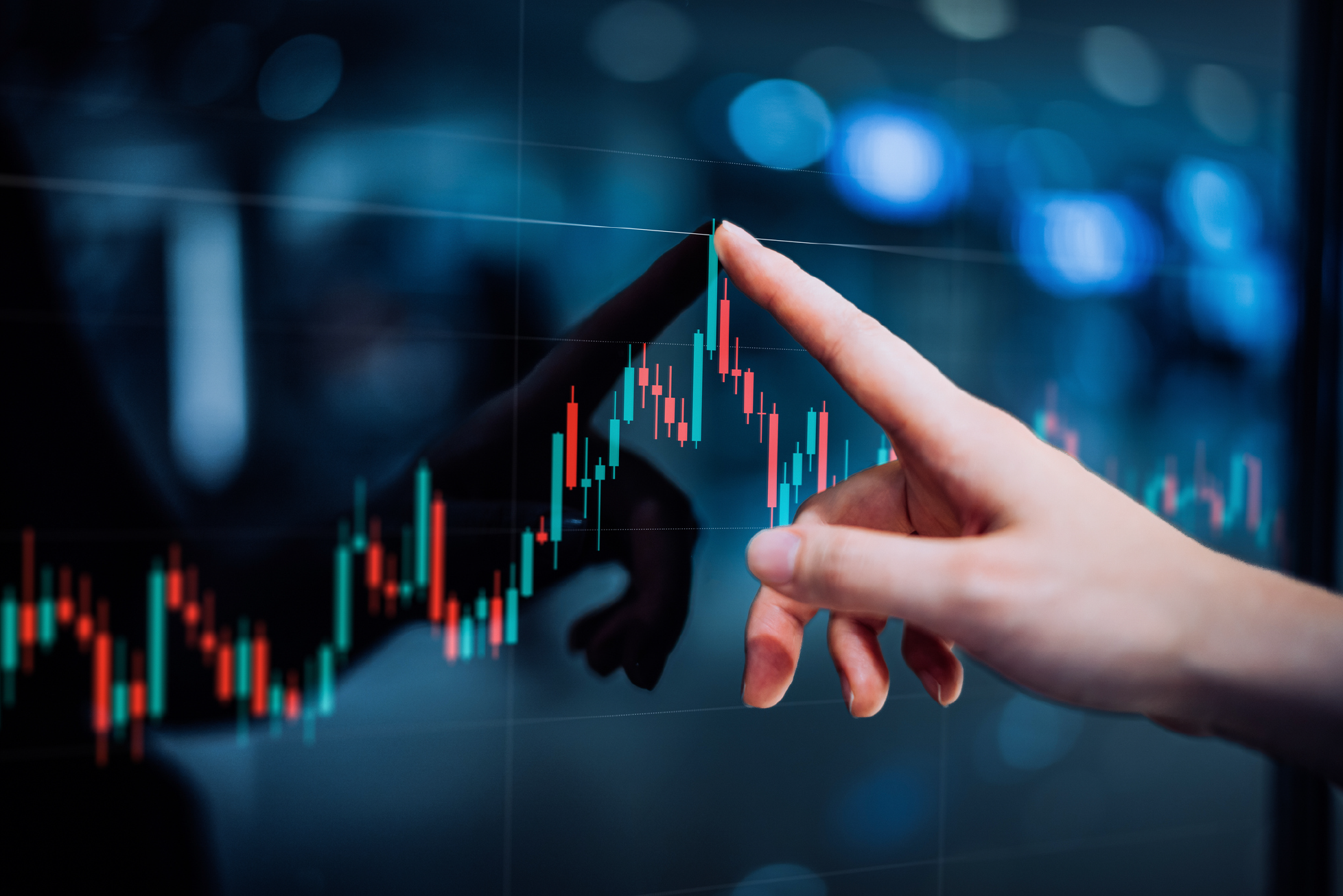Powering everything, crude oil- the source of refined fuels- is arguably the world’s most essential commodity. In holding that position, there comes a lot of pressure as well. Market volatility and other disruptions send prices swinging in different directions. Furthermore, managing this product is not a walk in the park.
ETRM and refined fuels: Enabling real-time view for businesses with digitalization
Powering everything, crude oil- the source of refined fuels- is arguably the world’s most essential commodity. In holding that position, there comes a lot of pressure as well. Market volatility and other disruptions send prices swinging in different directions. Furthermore, managing this product is not a walk in the park. As the market plays jump-rope with crude oil prices, is it any wonder that businesses are always on the lookout for a strong system that can ensure proper risk management measures?
What are refined fuels?
Refined fuel or refined petroleum products are derived from crude oils. They are products created through processes such as catalytic cracking and fractional distillation. These products have physical and chemical characteristics that differ according to the type of crude oil and subsequent refining processes.
Examples of refined fuel product:
- Propane: Used as a feedstock for ethylene cracking, or blended into LPG for fuel
- Butane: Used as a feedstock for ethylene cracking, or blended into LPG for fuel
- LPG (liquefied petroleum gas): A blend of propane and butane used as fuel
- Light naphtha: Used as feedstock into ethylene crackers
- Gasoline: Used as a transportation fuel for cars and trucks
- Aviation gasoline: Used as aircraft engine fuel
- Jet fuel: Used as jet aircraft fuel
- Kerosene fuel oil: Used as a residential cooking, heating, and lighting fuel
- Diesel: Used as a fuel for heavy-duty trucks, trains, and heavy equipment
- Industrial gasoil: Used as a furnace fuel in industrial plants and commercial/residential heating (heating oil)
- Residual fuel oil: Used as a fuel in power generation and for large ocean-going ships (bunker fuel)
Refined fuels contract journey
The refined fuels value chain is vast and complex. It involves many operational processes such as purchase, sale, approval, hedging and more. There’s also a need to fix the contract price and capture how the goods are moving. This includes shipping details, delivery and more. As it is a nuanced industry, businesses that deal with refined fuels need to have visibility into every aspect of its lifecycle.

Trading and risk management challenges for refined fuels businesses include:
- Using spreadsheets to handle operations:
Manual data capturing can be error-prone and tedious. Businesses that use spreadsheets to manage operations are at a disadvantage as it can lead to delayed decision-making. - Detached teams delaying PnL reports:
Often times, different teams need to collaborate and share data in order to create important documents like PnL report. Without intra-team collaboration, crucial reports get delayed. - Difficulty capturing WACOG:
Weighted Average Cost of Goods (WACOG) method is the ration of the total cost of natural gas purchased during a base period divided to either the total quantity purchased or the system throughout (unit of sales) during the same period. Businesses need a system in place to align these price variations as per contract and analysis in real-time the available stock in hand. - Capturing price fluctuations due to blending:
All refineries need to meet tight product specifications in the form of American Society for Testing and Materials (ASTM) temperatures, viscosities, octane numbers, flashpoints, pour points, etc. To achieve desired products with minimum specifications of these important parameters, blending is carried out. - Impact of market volatility:
Disruptions and fast-paced markets can cause a lot of volatility. Businesses need safeguards against shocks and jolts of the market.
Enabling faster decision-making and better management of refined fuels with Eka’s ETRM
Eka’s ETRM (Energy Trading and Risk Management) Platform is the only solution built to serve businesses in Crude Oil and Refined commodities. Its modern architecture enables traders, risk managers, schedulers, and back-office personnel to gain a real-time view of required information from original trade through to the final destination.
Key features:
- Captures all pricing and necessary cost components to accurately calculate settlement, including transportation, demurrage, product re-grades, logistics costs and differentials
- Delivers an aggregated, real-time weighted or volumetric and financial view of positions and risk in a single system
- Utilizes real-time reporting to optimize inventory management
- Advanced Physical Trade capture helps save valuable time and significantly improves efficiency in contract management
- Captures simple and complex pricing configurations along with premium or discount matrix for a trade
- Dynamic inventory allocation system managed via discrete and consolidated stocks, while facilitating blending and mixing of products at onsite or offsite locations
Overall, managing risk is a crucial part of the refined fuels industry. By understanding the potential risks and implementing effective strategies, traders and other industry participants can protect their businesses and ensure the smooth flow of these essential commodities.
Watch this space for a comprehensive eBook on overcoming challenges faced in the refined fuels industry.
Other resources

How advanced analytics addresses key challenges in commodity trading
The COVID-19 pandemic, the Ukraine war, and the rapid shift to renewable energy commodities is driving firms in the commodities space to rethink their approach to making trading decisions, forcing them to adapt in almost real time.

FOMO: Is the CPG industry ‘missing out’ on a unified data view?
Achieving excellence in CPG trading and risk management
Digitalizing procurement for Consumer Packaged Goods (CPG) industry might just be the best idea since sliced bread. Why?

The COVID-19 pandemic, the Ukraine war, and the rapid shift to renewable energy commodities is driving firms in the commodities space to rethink their approach to making trading decisions, forcing them to adapt in almost real time.

Achieving excellence in CPG trading and risk management
Digitalizing procurement for Consumer Packaged Goods (CPG) industry might just be the best idea since sliced bread. Why?